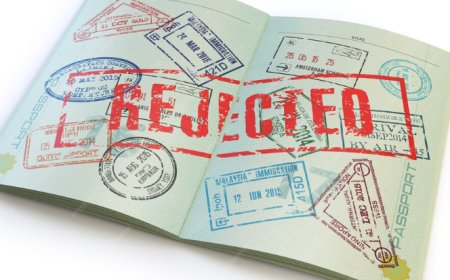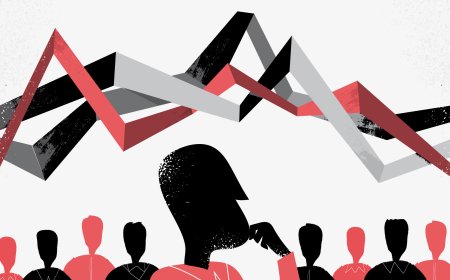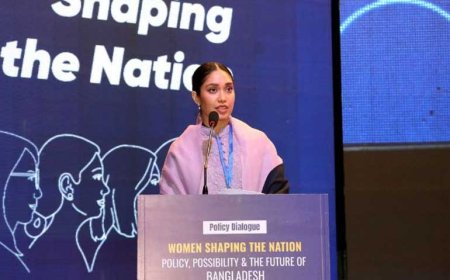Bangladesh’s Financial Abyss: A Crisis of Corruption and Collusion in Finance Companies
NBFIs can be saved -- but liquidation is not the answer. Bangladesh Bank needs to impose immediate and strict oversight, remove the compromised directors and managers, and install competent, independent professionals.
Bangladesh’s financial sector, particularly its non-banking financial institutions (NBFIs) and leasing companies, isn’t just struggling -- it is bleeding out.
For the past 16 years, a toxic cocktail of systemic corruption, crony capitalism, and a shocking erosion of regulatory independence has turned these vital financial entities into personal piggy banks for a select few.
The numbers are chilling: over Tk 92,000 crore has vanished in major scams across the broader financial landscape, and non-performing loans (NPLs) have surged by an unprecedented 713% since 2009, reaching a staggering Tk 4.20 trillion by March 2025. This isn’t just mismanagement -- it’s a deliberate, calculated plunder of our nation’s wealth, with specific entities like People’s Leasing and International Leasing at the epicenter.
At the core of this disaster lies the rot at the top. Bangladesh Bank executives weren’t merely negligent -- they were instructed to look the other way as banks and finance companies were quietly acquired by beneficiaries of the ruling Awami League.
But looking the other way wasn’t enough. Once these politically connected owners secured control, they didn’t just loot for themselves -- they showed the way. Their brazen tactics taught Bangladesh Bank officers, NBFI management, and even rank-and-file officials how to play the game.
What began as top-down corruption quickly percolated through the entire system. The rot spread downward, turning once-functional institutions into hollow shells where self-enrichment, not service, became the norm. Regulatory capture didn’t just enable the plunder -- it normalized it, until the entire financial sector was rigged as a cash machine for anyone willing to play dirty.
At the heart of the crisis is this learned, entrenched “pay for play” culture. Powerful business groups and politically connected individuals systematically infiltrated and exploited financial institutions -- but they didn’t act alone. Over time, directors, managers, and regulators got in on the action. It’s a playbook perfected over years: directors weren’t merely influenced -- they were effectively purchased, or worse, willingly complicit, putting private gain above fiduciary duty. Loans were handed out without mortgages, without collateral -- sometimes without even specifying an interest rate -- as if the public’s money were chips on a casino table.
Directors routinely circumvented Bangladesh Bank’s restrictions on self-lending by borrowing anonymously through relatives or shell companies, looting loans from other institutions through collusion and mutual cover-ups.
And despite the change in political climate, the looting hasn’t stopped. Although the interim government has taken over, its focus so far has been on commercial banks — leaving financial companies and NBFIs largely untouched. The same cronies, handpicked by the corrupt Awami League regime, remain in charge of these institutions. And they continue the same reckless, self-serving practices, unchecked and unchallenged, as if nothing has changed.
Immediate action is essential to stop the rot. Companies like People’s Leasing weren’t doomed by market forces -- they were deliberately driven to ruin and ordered liquidated by the corrupt Awami regime to cover up the scale of their looting.
Bangladesh Bank is the only authority that can liquidate an NBFI, and when it does so without addressing the underlying theft, it is the innocent depositors who lose everything while the real perpetrators walk away rich and unpunished.
Now, shockingly, the interim government is reportedly considering liquidation of these companies once again -- as if repeating this failed, unjust solution could somehow clean up the mess. This is simply not acceptable.
These companies can be saved -- but only if Bangladesh Bank imposes immediate and strict oversight, removes the compromised directors and managers, and installs competent, independent professionals.
Liquidation lets the crooks win while destroying the lives of small depositors, some of whom have already died under the strain of losing their life savings and being unable to afford even basic medical care. We owe it to these people -- and to the future of our financial system -- to demand real accountability and real reform.
The consequences of this systemic, ongoing corruption are dire. Our financial system isn’t just on the edge of a cliff -- it’s dangling by its fingernails over the abyss. Institutions gutted by years of looting are still in the hands of the very people who did the looting. Bangladesh Bank’s desperate overprinting of money to plug these holes now risks inflation and currency collapse. Corruption is baked into the commercial environment, poisoning our ability to attract foreign investment.
And public trust? It’s in tatters. People see the same faces, the same rackets, the same impunity -- and they are losing faith that anything will change.
Cosmetic reforms won’t save us. This crisis demands radical action -- now. Bangladesh Bank must be empowered and compelled to intervene in the NBFIs without delay. Managements and boards must be overhauled, compromised directors removed, and governance restored with people who can actually do the job.
Above all, we need political will -- not words, not promises, but action that puts the country before the crooks. If we wait, we’ll be left picking through the ashes of our financial future.
What's Your Reaction?


















































































